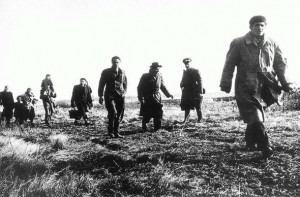

In November, 1956, what started as a trickle turned into a flood as hundreds of thousands of Hungarian refugees fled their homes, bound for Austria and the West. They were escaping the brutal suppression by Soviet troops of their abortive uprising against communist rule.
Armed resistance was crushed within a week. Mass arrests and denunciations of “traitors” continued for months. Austria greeted those refugees with open arms, announcing that every Hungarian refugee who reached Austria would be granted political asylum.
CNN recalled that history in a report yesterday, reminding us that the Hungarian crisis of 1956 would become the template for the international community’s future response to refugee crises.
Contrast that with the actions of the Hungarian government, which has redoubled its efforts to complete a barrier fence along its border with Serbia in an increasingly aggressive efforts to block the flow of refugees, mainly from the wars ravaging Syria and Iraq, from entering its territory as they desperately try to make their way to Germany. As the New York Times reports,
Prime Minister Viktor Orban has repeatedly said that Hungary has the right to protect its Christian traditions by refusing to accept large numbers of Muslims, and that many of the arrivals making their way to Germany and other prosperous nations do not deserve asylum.
There’s an sad irony here in the failure of Hungary to repay the compassion that they received six decades ago with some compassion of their own.